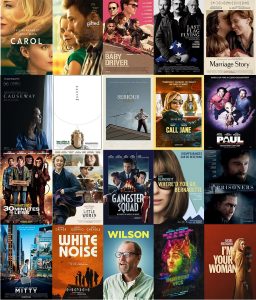Introduction
The independent film industry has always pushed creative limits and explored fresh stories. But diversity and inclusion aren’t just popular terms; they are essential for the future of cinema. More filmmakers and audiences are demanding wider representation. Independent films help amplify voices that often go unheard. This article looks at how diversity and inclusion are changing in independent film, their impact, and the challenges and opportunities for filmmakers.
The Rise of Diversity and Inclusion in Independent Film Production

Independent films are now more diverse and inclusive than ever. In recent years, there has been a shift toward making movies that reflect more voices and experiences. Indie filmmakers have the freedom to tell stories that don’t always fit the Hollywood mold. Today, independent films are leading by showcasing unique stories and casting diverse characters. This lets audiences see different cultures, backgrounds, and ideas.
Why Diversity and Inclusion Matter in Independent Films

The Benefits of Diversity and Inclusion in Independent Films

When independent films include diverse voices, everyone benefits. Audiences get to see new perspectives and understand different experiences. This can break stereotypes and build empathy. Diverse films can also reach new viewers, as people are more likely to watch movies where they feel represented. For the film industry, embracing diversity brings fresh ideas and creativity, making stories richer and more real.
Independent Films: A Voice for Every Story

Independent films have a special freedom that big productions don’t always have. They aren’t controlled by large studios or focused only on making money. This lets indie filmmakers tell stories that show real-life diversity stories about different cultures, experiences, and viewpoints. By sharing these unique stories, independent films give a voice to people and communities often overlooked by mainstream movies.
The Current State of Diversity in Independent Films

In recent years, independent films have become leaders in promoting diversity. Many indie filmmakers focus on casting actors from underrepresented groups and telling stories about minority experiences. This change responds to society’s call for better representation and the creative freedom that indie films enjoy. Unlike big-budget movies, indie films can take more risks. This allows them to explore difficult or unique topics without worrying as much about making a profit.
| Analysis of Diversity in Independent Films | Mainstream Film Industry |
|---|---|
| High representation of minority experiences | Limited representation |
| More flexible and experimental formats | Standard, audience-tested formats |
| Often lower budgets with more creative freedom | Higher budgets with commercial constraints |
| Focus on niche audiences | Focus on mass appeal |
Key Challenges in Achieving Diversity in Independent Films

Despite the growing focus on diversity, independent filmmakers still face challenges. Funding is one of the biggest hurdles because diverse films are sometimes seen as risky investments. Access to distribution can also be limited, making it harder for these films to reach a wide audience. Film festivals and streaming platforms are very competitive, and independent films must work hard to stand out in a market where mainstream movies often take the spotlight.
Opportunities for Independent Film Productions
Opportunities for diversity in independent films are growing. New technology and changing audience demands help make this possible. Social media, crowdfunding, and streaming services give indie filmmakers new ways to fund, create, and share films with diverse themes. For example, crowdfunding can connect filmmakers with audiences who want to see real representation. Streaming services also give films a global reach, helping them avoid traditional distribution barriers.
The Freedom to Tackle Bold Themes

With fewer commercial limits, independent films can explore topics that big studios might avoid. For example, indie filmmakers often focus on social issues like immigration, racial discrimination, mental health, or LGBTQ+ rights. These films don’t avoid sensitive subjects. This freedom to explore important themes helps indie films stand out. They have the power to start conversations and inspire change.
Reaching Audiences in New Ways

For independent filmmakers, reaching audiences can be difficult. But today, there are more options than ever. Social media, streaming platforms, and online film festivals make it easier for indie films to find viewers. These tools let filmmakers connect directly with people who want to see new stories, including those with diverse voices. Crowdfunding platforms like Kickstarter and GoFundMe also help filmmakers raise money to bring their ideas to life.
The Impact of Diverse Independent Films on Audiences
Diverse independent films have a lasting impact on audiences by fostering awareness and encouraging social change. Films that reflect a variety of experiences allow viewers to learn about unfamiliar cultures, struggles, and victories, fostering a deeper understanding of global issues. Additionally, diverse films can inspire new filmmakers from all backgrounds to pursue their creative dreams, contributing to a more inclusive industry.
Challenges in Achieving Diversity in Independent Film Production

The Path Ahead: Building a More Inclusive Film Industry
The push for diversity and inclusion in independent films is growing, but there’s still a long way to go. Support from audiences, investors, and the film industry is important to keep this progress moving. With every new, diverse film, the industry gets closer to a future where all voices are heard and valued. By supporting indie films that focus on diversity, viewers help make room for more stories that reflect the world we live in.
The Future of Diversity and Inclusion in Independent Film

The future of diversity and inclusion in independent film production looks bright. As audiences show more support for diverse storytelling, the demand for inclusive films will keep rising. With new technology, crowdfunding, and streaming platforms, indie filmmakers now have more ways to reach audiences and showcase their stories. If this trend continues, independent films will keep leading the way in making the film industry more inclusive, inspiring future generations of filmmakers to embrace diversity.
Comparative Table: Diversity and Inclusion in Independent vs. Mainstream Film Production
| Aspect | Independent Film Production | Mainstream Film Production |
|---|---|---|
| Storytelling Themes | Diverse, often niche topics | Mainstream appeal, proven themes |
| Casting | Diverse and often unconventional | Recognizable stars, less diversity |
| Hiring Practices | Open to minority hiring | Often driven by reputation and connections |
| Budget | Low to moderate | High budget with commercial expectations |
| Audience | Niche audiences, dedicated viewership | Wide, general audience |
Conclusion: A Path Forward for Diversity in Independent Film
Diversity and inclusion are reshaping independent film production, offering new perspectives and pushing the boundaries of storytelling. While challenges remain, the commitment to authentic representation has never been stronger. Independent filmmakers are leading the charge, showing that when diversity and creativity converge, cinema becomes a powerful tool for connection and change. With continued efforts and support, the independent film industry can drive a more inclusive future in entertainment.










